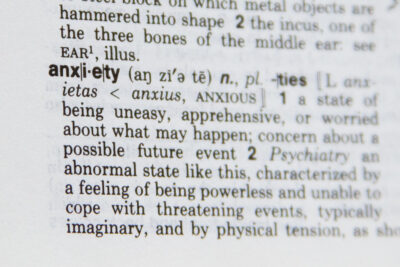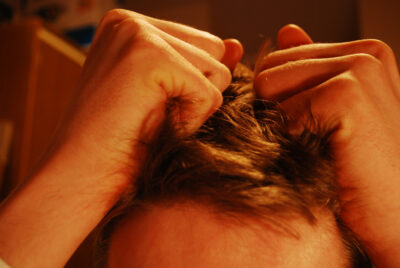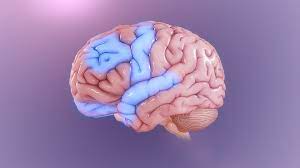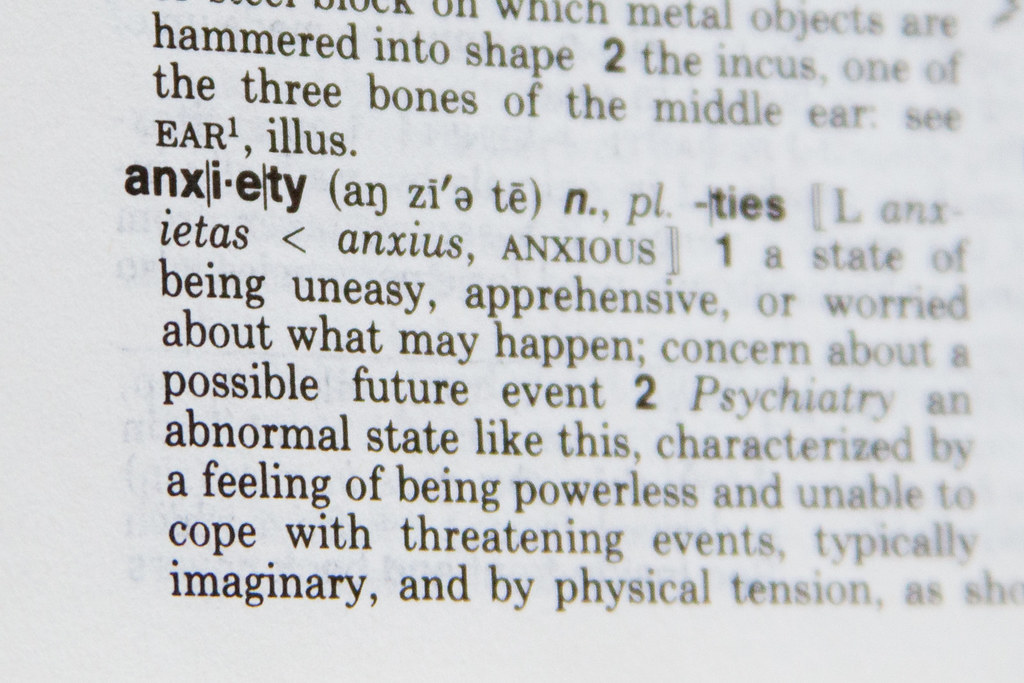Heightened Anxiety: Agoraphobia the Fear of Heights
How to Overcome a Fear of High Places: Agoraphobia.
In today’s world, the number of people affected by any kind of mental health illness is at its peak, the main problem arises when more of the world is unknown and is living in denial of mental health. Hence, seeking out help from a mental health specialist or joining support groups to treat anxiety disorders and mental illness becomes a must.
So, first let’s take a deep dive into what anxiety disorder is, what causes it, how it is cured, and finally what are its causes.
What is Anxiety?
Anxiety describes the body’s physiological responses in response to perceived threats. Besides causing the body to pound and sweat, it also causes the gastrointestinal tract and brain to become hyperactive. We all experience phobias at times. This helps prevent danger as it helps our brain to stay alert to escape. However, anxiety isn’t gone in most people’s minds. Their anxieties can affect their ability to concentrate and sleep, and may also impact their ability to perform ordinary jobs. This feeling could result in an anxiety disorder.
Experiencing occasional anxiety is common in our lives. But many people suffering from anxiety disorder worry about the things happening every day. In many cases, anxiety disorder occurs in the form of repeated sudden feelings of fear or panic at a height in minutes.

What Are the Symptoms of Anxiety and Other Mental Illnesses?
Symptoms vary by anxiety disorder of a different kind. It may also be possible for people suffering from anxiety to have a certain level of stress and even a certain amount of chest pain, they might be addicted to alcohol and substance use due to excessive anxiety caused by stressful life events
Self-consciousness is the Key!
It can be difficult to get help with these signs unless you speak directly to a doctor or counselor. Sometimes the feeling is better but getting help may aid in reducing an anxiety level and easing the effects. CHECK YOUR Symptoms. Use the anxiety and depressive symptoms checker and consult a doctor or your legal guardian.
Environment and Everyday Life
Anger can be avoided when it comes to certain situations where one feels anxious. It may have an adverse effect on the lives of those around them. They may be too busy worrying about the present or past.
What are the Causes of Anxiety Disorder?
Anxiety can also be caused by other emotions. It is the brain’s reaction when feeling pressure and alerts it about potential dangers ahead. We have a lot of anxiety. Some people worry if they’re having problems at work before undergoing tests before taking important action. Sometimes, fear may cause mental illness. The symptoms of anxious moods can vary.
These are disorders that cause intense anxiety and worry. It can lead to excessive stress, which can cause anxiety and can affect you in several different ways. With the right help for anxiety disorder, sufferers feel more comfortable.
It is difficult to understand why an individual is so anxious or why they interfere with their lives. Anxiety may also result from many reasons and may become an inflammatory disorder. Some people who get anxious often develop anxiety symptoms. There is no definitive reason for this difference among women with anxiety.
However, there is no clear answer to anxiety symptoms. However, many people have experienced varying degrees of anxiety. Genetic studies. Some are reportedly anxious. Some of our genes trigger fear. Living. It may be bad experiences like abuse or losing a family friend. There can also be big changes in your life like moving home. Medications. Caffeine may increase your anxiety. Illegal drugs and street drugs are other causes of harm. Conditions. Sometimes you understand why you feel anxious. Whenever something is wrong you have anxiety too.
How is Anxiety Diagnosed?
The doctors may be able to talk to the patient to find out if it’s a serious problem or not. The questionnaire is often detailed. The more detailed the answers to your questions the better. It is possible that anxiety disorders can affect the ability to work, school, or socially. This survey can also determine the severity of your depression and its symptoms. Depending on the diagnosis and severity of an anxiety disorder, the patient should be evaluated in conjunction with an expert.
When Should I See My Doctor?
When you’re struggling with an anxiety attack, you should consult a doctor. It might also be helpful to note the symptoms you are experiencing before your next appointment. It helps diagnose anxiety disorders. If you’re getting suicidal thoughts, you should contact an urgent medical service.
Find help! Even if you are getting even one of the signs and symptoms of anxiety disorders.
How is Anxiety Treated?
The most effective treatment for your anxiety problem depends on your condition, your symptoms, and how serious the condition is; There exist different solutions for different problems.
Mild anxiety is helped by changing the lifestyle, such as physical activity and therapy, like cognitive behavior therapy.
In severe situations, prescription drugs are needed. The people you are assisting can include therapists, psychiatrists, psychologists, psychiatry nurses, or other professional counselors. With good care, recovery can happen.
How Can I Get Help if I Think I Have an Anxiety Disorder?
If you have any symptoms you should contact a doctor immediately. They might even cause a problem with your daily life. When choosing treatment, your doctor will consider several factors.
The most commonly used methods in treating anxiety are:
Psychological Therapy
Anxiety is sometimes treated using several techniques: cognitive behavior therapy or behavioral therapy. The component of CBT includes the ‘desensitization’ method which gradually exposes you to feared situations to decrease your fears. Other forms of therapy for anxiety can be interpersonal therapy (focused on relationships), and acceptance and commitment therapies (like Mindful Thinking and narrative therapies).
Medicine
Depending on the patient’s condition the antidepressant might help relieve symptoms and reduce the pain caused by the condition. Medicine is typically recommended in combination with this strategy. Treatment of anxiety takes a little time but a well-developed support network helps. Some of them are let out of fear but can recover easily.
SSRI is a form of antidepressant used in treating anxiety disorders. Sertraline was the most common medication to relieve an anxious feeling, but other drugs have been found. SNRI inhibitors: SNRI is an antidepressant drug. Some people have been prescribed SNRI when they haven’t taken SSRI for some time.
Pregabalin, pregabalin, is one of the medications used to treat the effects of convulsions. Anti-convulsed drugs are commonly employed for treating epilepsy. Pregabalin can also help with the symptoms of an anxious mood. Benzodiazepines Doctors recommend only prescribing benzodiazepines for extreme fear and panic.
Online Support Tools
Some online tools are suitable for people with moderate anxiety. There are various programs, most supported via telephone, email, text, or online chat support. The Internet can be especially useful when living in rural and remote locations when accessing medical care is difficult.
What are the Different Types of Anxiety Disorders?
Phobias
Phobias are phobias that fear something, a person, or even an environment. They arise when people feel more afraid of situations or things. Those who suffer from phobias might organize their routines to minimize the things that are giving them anxiety.
Some examples of phobic disorders are:
Agoraphobia
Agoraphobia is the fear that one may escape difficult situations. They might also fear being at height and in crowded places. Sometimes a situation where it’s impossible to help in a bad situation. You may also notice these events can give you anxiety, distress, and panic. Occasionally you might be able to completely stop the situation.
Social Anxiety Disorder
Social anxiety disorder is also called social phobia. Many people are afraid of social situations, but if you feel social anxiety, you are afraid of social situations or performance situations. These events can occur before, during, or after a particular event.
There are many common causes of an anxious state. Maybe you feel uncomfortable doing something embarrassing. You might have seen physical symptoms. These include sweat, heartbeat, chest pain, shaky vocals, and blush. You can fear that other people will notice or evaluate you. You could find yourself avoiding some situations.
Panic Disorder
You can often have frequent panic attacks without specific triggers when you have anxiety problems. It can be incredibly scary to see these things suddenly. You might also be concerned about an unforeseen incident.
Panic disorders have symptomatic symptoms including these symptoms: You can disconnect from the situation after an accident. So you feel isolated from yourself. Occasionally situations may cause panic attacks. In some cases, if one has trouble with small spaces and needs help from someone you can take the stairs too… There is nothing to fear about this.

Skin-Picking
Skin picking is commonly called Dermatillomania. This was a problem with impulse control. You can often touch your skin. Sometimes we pick up a clean face. This can cause swollen or bruises and may leave a mark or scar on the skin. You usually pick the facial skin but you can pick other parts of the body.
You won’t have any problem stopping yourself! There is no evidence to suggest skin picking is necessary. It seems like an addiction. It relieves tension. OCD and Demmatilomania are common together. You should consult your doctor preferably for treatment.
Body Dysmorphic Disorder (BDD)
Having a BDD may make your face upset. They never go away, and they impact our everyday lives. This shouldn’t mean a poor appearance. You can think you’re ugly and all see you ugly unless they tell you it’s not true. Maybe someone will focus attention on your faces, such as skin and birthmarks.
The situation is often distressful which can cause depressed feelings. Do not forget that you may spend many hours doing this. They explain treatment possibilities. The Doctor might arrange for a BDD support staff member who has experience.
Generalized Anxiety Disorder (GAD)
GAD has a reputation. GAD mainly causes excessive worries about various events or activities. You’re probably going to have to worry about something. Often people feel nervous when they are on GAD. You may be a little nervous about your surroundings. This could affect our lives daily.
It might affect the way you work, get out of work or go home. You may also find it hard to sleep or concentrate. Some people suffer from muscle tension or excessive sweating. GAD causes a lot more symptoms and is more common.
Hair Pulling
Hair pulling is formally called trichotillomania. It’s a disorder of impulse control. If it happens you want to remove hair. It may originate from shaves, eyelash lines, legs, or even pubic hairs. You may have difficulty stopping your actions.
You will likely feel more tension when you remove the hair strand. Some people don’t realize they did this. Keeping them in a state of difficulty is possible, which may result in hair loss. Having these experiences can also be very harmful.
Obsessive-Compulsive Disorder (OCD)
It can be a compulsion to have an obsession. Surely it could happen in a bad way without doing this. Maybe you know your thoughts/actions aren’t logical but find it hard to stop. Talk with your physician for advice on what causes OCD to develop. The physicians will talk to your physician about your treatment. You can also go to an NHS treatment center for treatment. Click here for information on obsessive-compulsive disorder.
Health Anxiety
You can experience some kind of mental anxiety if you worry about whether you are sick. You have no idea if you’ll get sick? Some people get headaches or heartbeats from anxious feelings. However, when someone feels anxious it can seem as though they are suffering.

Post-traumatic Stress Disorder (PTSD)
You may have PTSD after enduring any stress or distressing situation. In some cases, it may be that you have had trauma for many years.
Agoraphobia Anxiety Disorder Diagnosis
If you have symptoms, your physician will look at your symptoms and give you information regarding your medical condition. This is often done by a doctor to find out whether the underlying causes are the same as the symptoms. There is no specific laboratory test to diagnose a specific anxiety disorder. If your medical professional does not have physical explanations for your feelings, they may take you to psychiatrists or psychotherapists. They’re going to ask you a question about your anxiety problem or use tools and testing to test your symptoms. During an examination, your doctor may look at whether you have been suffering from symptoms for some time.
The Efficiency of Anxiety Disorder Treatment
Treatment for anxiety is very effective. Generally, those who are having anxiety disorders take medicines and consult a psychologist. Treatment options include Medication. Several medications have been used to alleviate the symptoms of panic disorder.
Ask the doctor to explain each treatment to you. Psychotherapy: It can help you understand how your emotional reactions influence your behavior. It is sometimes known as talking therapy. One of the trained mental health experts listened to the thoughts and suggested strategies on how one can manage anxiety and depression.
Risk Factors for Agoraphobia Anxiety Disorders
It’s not just anxiety – it increases the chance that your symptoms will worsen. This is known as a risk factor. These risks cannot change.
Researchers are not able to tell exactly why people experience Agoraphobia anxiety. A combination of many different factors plays a role in what happens when a person gets a job or doesn’t get one.
Causes For Panic Attacks
Why Do People Experience Panic Attacks? In people with Agoraphobia anxiety, traumatic events can cause a lot of stress and depression. Inheritable characteristics may also play a part.
Medical Causes Of Panic Attacks
Occasionally anxiety can cause health issues as well – including Agoraphobia anxiety disorders. Often the anxiety symptoms can be the first indication of an illness. If the doctor suspects your fear is caused by medical conditions, the doctor may order tests. Some medical conditions associated with anxiety include: Anxiety may be caused as a result or as part of certain drugs. Your anxiety could have been caused by some underlying medical issue such as:
Agoraphobia – What Does Heightened or Elevated Anxiety Feel Like?
Feeling anxious, irritable, and in pain. Have an overwhelming fear. Feels like things are accelerating. Feel that others will see your anxiety, or look at your eyes.
Agoraphobia – How Long Does Heighten Anxiety Last?
Agoraphobia Anxiety attacks usually last 30 minutes and symptoms begin at around the midpoint of an attack. Agoraphobia Anxiety can develop hours or even days before attacks, and it is important to recognize factors that contribute to anxiety for effective prevention or treatment.
We have an Awareness Course to aid in further understanding of this anxiety disorder and how to minimise issues, ENROLL in the ACWH22- Working at Heights Awareness Course.
This awareness course addresses the major issues about hazards encountered when working at heights, as identified in the Model Code of Practice – Managing the Risk of Falls at Workplaces.
The course is divided into 3 parts:
- Legislation
- Hazards
- Equipment



